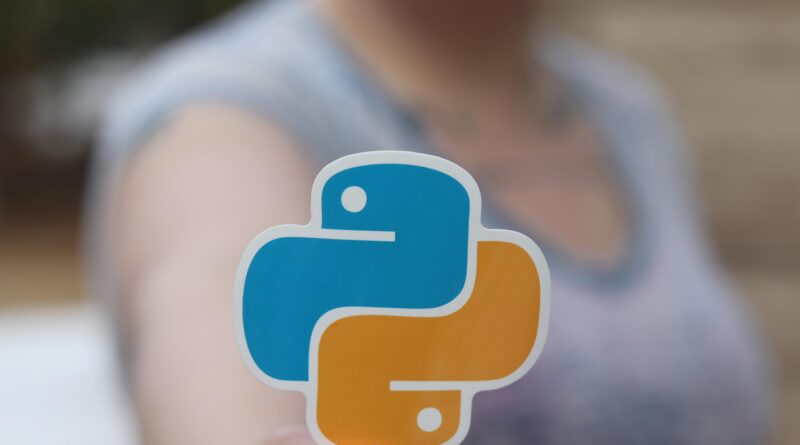The Role of Python in AI and Machine Learning: A Comprehensive Guide
Introduction
Artificial Intelligence (AI) and Machine Learning (ML) have become buzzwords in the tech industry, with businesses and individuals alike recognizing the potential of these technologies to transform various sectors. Among the programming languages that have gained prominence in this domain, Python stands out as a powerful and versatile choice. In this article, we will explore the role of Python in AI and Machine Learning, its benefits, and the various applications of this programming language in these fields.
Why Python is the Ideal Choice for AI and Machine Learning
Python has emerged as the go-to programming language for AI and Machine Learning projects due to several reasons:
- Python’s simplicity and readability make it accessible to both beginners and experienced programmers, enabling developers to focus on writing efficient code and solving complex problems.
- The vast ecosystem of open-source libraries and frameworks, such as TensorFlow, PyTorch, and NumPy, essential for AI and Machine Learning projects, provides a solid foundation for developers to build upon and accelerate their development process.
- Python’s versatility makes it suitable for a wide range of use cases, allowing it to be used for both small projects and large-scale AI applications.
- The community-driven nature of Python fosters collaboration and knowledge-sharing among developers, leading to faster progress and innovation in AI and Machine Learning.
- Python’s readability and high-level syntax make it easier to write efficient code, ultimately resulting in faster execution times, despite it often being considered slower than other programming languages like C++.
Applications of Python in AI and Machine Learning
Python’s role in AI and Machine Learning projects is evident in its widespread adoption across industries. Some of the key applications of Python in AI and Machine Learning include:

- Python is the tool for developing tools and libraries for processing and analyzing human language, enabling the development of chatbots, virtual assistants, and language translation systems.
- Python is the language used to develop algorithms for image and video processing, such as object detection, segmentation, and recognition.
- Python powers the building of algorithms for personalized product and content recommendations based on user behavior and preferences.
- Python drives the development of software for robots, enabling them to perform tasks autonomously or with minimal human intervention.
- Python drives the development of algorithms for decision-making and optimization problems, such as portfolio management and resource allocation.
Exploring the Implications and the Importance of Python Programming in the Future of Artificial Intelligence
Artificial Intelligence (AI) has been a topic of great interest and discussion in recent years, with rapid advancements in technology leading to significant breakthroughs in various fields. These breakthroughs have permeated various industries, ranging from self-driving cars to virtual assistants. As we delve deeper into the world of AI, it is essential to understand its future implications, the various applications, and the importance of programming languages like Python in this domain.
The Future of AI
The future of AI is promising, with experts predicting that it will become an integral part of our daily lives. As AI technology continues to evolve, it is expected to revolutionize various industries, including healthcare, finance, transportation, and education. Some of the most anticipated developments in AI include:
- Personalized learning: AI-powered tools will be able to adapt to individual learners’ needs, providing customized learning experiences that cater to their strengths and weaknesses.
- Enhanced automation: AI will continue to automate repetitive tasks, freeing up human labor for more creative and strategic roles.
- Improved healthcare: AI will play a crucial role in diagnosing diseases, predicting patient outcomes, and personalizing treatments.
- Smart cities: AI will help in optimizing resources, improving public services, and enhancing the overall quality of life in urban areas.
- Increased security: AI-powered cybersecurity solutions will be able to detect and prevent cyber threats more effectively than ever before.

The future of AI is promising, with experts predicting that it will become an integral part of our daily lives. As AI technology continues to evolve, it is expected to revolutionize various industries, including healthcare, finance, transportation, and education. Some of the most anticipated developments in AI include:
- Personalized learning: AI-powered tools will be able to adapt to individual learners’ needs, providing customized learning experiences that cater to their strengths and weaknesses.
- Enhanced automation: AI will continue to automate repetitive tasks, freeing up human labor for more creative and strategic roles.
- Improved healthcare: AI will play a crucial role in diagnosing diseases, predicting patient outcomes, and personalizing treatments.
- Smart cities: AI will help in optimizing resources, improving public services, and enhancing the overall quality of life in urban areas.
- Increased security: AI-powered cybersecurity solutions will be able to detect and prevent cyber threats more effectively than ever before.
Conclusion:
Python’s versatility, ease of use, and vast ecosystem of open-source libraries make it an ideal choice for AI and Machine Learning projects. As a result, Python has become a dominant force in the tech industry, and its importance in AI and Machine Learning applications is only set to grow in the coming years. Embracing Python will help developers and organizations stay at the forefront of AI innovation and ensure a more intelligent and connected future.




